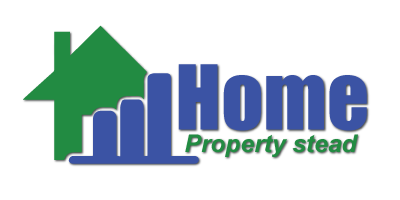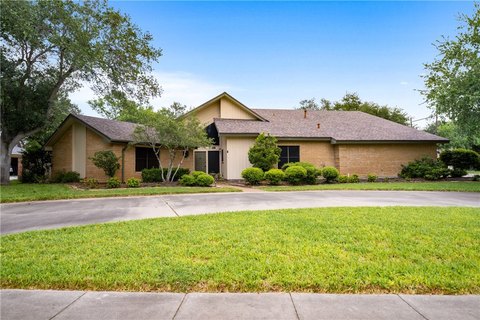When Sarah decided it was time to sell her home, she was excited about the potential financial gain but overwhelmed by the process. Friends told her to list with a real estate agent, but she was curious about for-sale-by-owner (FSBO) options. She also wondered if the new iBuyer companies, offering fast cash for homes, were worth considering. Sarah wanted to sell quickly but still get top dollar for her home. After some research and professional guidance, she found the best approach for her specific situation. By understanding her home’s value, preparing the house properly, and choosing the proper method for selling, she managed to sell her house in just a few weeks—at a price higher than she expected.
Selling a home can be daunting, especially when deciding which path to take. Like Sarah, homeowners often face a confusing array of choices: should you use a real estate agent, sell it yourself, or go with a quick-sale company? Each method has pros and cons; what works best for one person might not work for another. This article explores the various methods available to homeowners, backed by statistics and expert insights, to help you decide the best way to sell a house
- Selling Through a Real Estate Agent: The Traditional Method
How It Works
The most common home-selling method is working with a licensed real estate agent. Agents guide you through the entire process, from pricing the home to marketing it and handling negotiations. According to the National Association of Realtors (NAR), 87% of home sellers 2022 used a real estate agent or broker to sell their property (Source: NAR).
Real estate agents bring local expertise, marketing know-how, and a network of potential buyers. They help determine an appropriate listing price by analyzing recent comparable sales in your area (comps) and understanding current market conditions. They also arrange professional photography, virtual tours, and open houses to market your home.
Pros of Selling with an Agent
- Expert Guidance: Agents are familiar with the local market and can help you price your home appropriately.
- Marketing Power: An agent can access the MLS (Multiple Listing Service) and other marketing tools to increase visibility.
- Negotiation Skills: Real estate agents are trained negotiators who can help you get the best deal.
- Higher Sale Price: Homes sold with agents tend to sell for more money. A study by Zillow found that homes sold with an agent earn 24% more on average than FSBO homes (Source: Zillow).
Cons of Selling with an Agent
- Commission Fees: Real estate agents typically charge 5-6% of the sale price, which can be a significant cost. For example, if you sell your home for £300,000, you could pay up to £18,000 in commissions.
- Longer Process: It could take several weeks or months to find the right buyer, depending on market conditions.
Best for:
People who want to maximize their sale price are willing to pay commission fees and prefer professional guidance throughout the process.
- For Sale by Owner (FSBO): Cutting Out the Middleman
How It Works
FSBO means selling your home without the help of a real estate agent. You handle everything from pricing to marketing and negotiations yourself. Some homeowners choose this method to avoid paying commission fees, but it comes with challenges.
According to NAR, only 8% of homes were sold FSBO in 2022, down from 10% the previous year (Source: NAR). FSBO sellers often struggle with pricing their homes correctly, marketing them effectively, and handling legal paperwork.
Pros of FSBO
- No Commission Fees: By selling your home yourself, you can avoid the 5-6% commission paid to real estate agents.
- Total Control: You have complete control over the process, including when to hold open houses and how to negotiate offers.
- Personal Touch: As the homeowner, you know your property better than anyone and can directly answer questions from buyers.
Cons of FSBO
- Limited Marketing: Access to the MLS is necessary in front of potential buyers.
- Lower Sale can be harderPrice: FSBO homes generally sell for less. According to NAR, the typical FSBO home sold for £225,000 in 2022, compared to £345,000 for agent-assisted sales (Source: NAR).
- Legal and Negotiation Challenges: FSBO sellers are responsible for all legal documents and negotiations, which can be overwhelming without experience.
Best for:
Homeowners who are confident in their ability to market their property, understand real estate laws and want to save on commission fees.
- Using an iBuyer: The Quick and Convenient Sale
How It Works
iBuyers are real estate companies that use technology to make instant home offers. Companies like Opendoor, Offerpad, and Zillow Offers allow homeowners to sell their property quickly without having to list it traditionally. iBuyers are ideal for those looking for convenience and speed but may offer a slightly lower price than the open market.
iBuyers typically make an offer within 24-48 hours of receiving property details and can close in as little as a week. In exchange for this speed and convenience, iBuyers often charge a service fee ranging from 5-7% of the home’s value, similar to agent commissions.
Pros of Using an iBuyer
- Speed: iBuyers can close in as little as 7-14 days, making it an excellent option for homeowners who need to sell quickly.
- No Showings or Open Houses: You can skip the hassle of staging your home, hosting open houses, and dealing with potential buyers.
- Certainty: With iBuyers, there’s no risk of a sale falling through due to financing issues, as they typically buy homes in cash.
Cons of Using an iBuyer
- Service Fees: While you avoid agent commissions, iBuyers charge service fees that can be just as high, ranging from 5-7%.
- Lower Offers: iBuyers tend to offer less than what you might get in a traditional sale, with estimates suggesting 1-3% lower prices on average (Source: Real Trends).
Best for:
Sellers who need to move quickly want a hassle-free process and are willing to accept a slightly lower price in exchange for speed and convenience.
- Selling to a Cash Buyer: Fast but at a Cost
How It Works
Cash buyers, often real estate investors, purchase homes quickly without financing. They are particularly interested in distressed or needing repairs. Cash buyers usually offer a lower price than the market value but can close the deal within days.
Pros of Selling to a Cash Buyer
- Fast Closing: Cash buyers can close in as little as seven days, making this ideal for homeowners who need to sell fast due to foreclosure, divorce, or financial difficulties.
- No Repairs Needed: Cash buyers typically buy homes “as-is,” meaning you don’t need to invest in repairs or renovations.
Cons of Selling to a Cash Buyer
- Lower Sale Price: Cash buyers typically offer 10-30% below market value because they plan to flip or rent the property for profit (Source: ATTOM Data Solutions).
- Limited Market: The pool of cash buyers is smaller than the general homebuying population.
Best for:
Homeowners who need to sell fast need more time, money, or interest to make repairs or wait for a traditional sale.
Tips for Selling Your Home Faster (Regardless of Method)
- Price It Right: Overpricing can lead to your home sitting on the market while pricing it slightly below market value can spark a bidding war.
- First Impressions Matter: Curb appeal can make or break a buyer’sbuyer’s decision. Ensure the lawn is mowed, the exterior is clean, and the entrance is inviting.
- Declutter and Depersonalize: Make the home feel like a blank canvas for potential buyers by removing personal items and excess clutter.
Conclusion:
Which Method Is Best for You?
The best way to sell a house depends largely on your priorities. Working with a real estate agent is likely your best option if you’re focused on maximizing your sale price and have time to wait for the right buyer. If you want to avoid agent fees or need a quick sale, FSBO or working with an iBuyer could be a better fit. Meanwhile, if speed is your top priority and you’re willing to sacrifice some value, selling to a cash buyer might be the way to go.
In the end, understanding your unique needs, the condition of your home, and the current market will help guide you to the best method. Like Sarah, with the proper research and preparation, you can navigate the complex process of selling your home and walk away with a deal that meets your goals.












 Afrikaans
Afrikaans Shqip
Shqip አማርኛ
አማርኛ العربية
العربية Հայերեն
Հայերեն Azərbaycan dili
Azərbaycan dili Euskara
Euskara Беларуская мова
Беларуская мова বাংলা
বাংলা Bosanski
Bosanski Български
Български Català
Català Cebuano
Cebuano Chichewa
Chichewa 简体中文
简体中文 繁體中文
繁體中文 Corsu
Corsu Hrvatski
Hrvatski Čeština
Čeština Dansk
Dansk Nederlands
Nederlands English
English Esperanto
Esperanto Eesti
Eesti Filipino
Filipino Suomi
Suomi Français
Français Frysk
Frysk Galego
Galego ქართული
ქართული Deutsch
Deutsch Ελληνικά
Ελληνικά ગુજરાતી
ગુજરાતી Kreyol ayisyen
Kreyol ayisyen Harshen Hausa
Harshen Hausa Ōlelo Hawaiʻi
Ōlelo Hawaiʻi עִבְרִית
עִבְרִית हिन्दी
हिन्दी Hmong
Hmong Magyar
Magyar Íslenska
Íslenska Igbo
Igbo Bahasa Indonesia
Bahasa Indonesia Gaeilge
Gaeilge Italiano
Italiano 日本語
日本語 Basa Jawa
Basa Jawa ಕನ್ನಡ
ಕನ್ನಡ Қазақ тілі
Қазақ тілі ភាសាខ្មែរ
ភាសាខ្មែរ 한국어
한국어 كوردی
كوردی Кыргызча
Кыргызча ພາສາລາວ
ພາສາລາວ Latin
Latin Latviešu valoda
Latviešu valoda Lietuvių kalba
Lietuvių kalba Lëtzebuergesch
Lëtzebuergesch Македонски јазик
Македонски јазик Malagasy
Malagasy Bahasa Melayu
Bahasa Melayu മലയാളം
മലയാളം Maltese
Maltese Te Reo Māori
Te Reo Māori मराठी
मराठी Монгол
Монгол ဗမာစာ
ဗမာစာ नेपाली
नेपाली Norsk bokmål
Norsk bokmål پښتو
پښتو فارسی
فارسی Polski
Polski Português
Português ਪੰਜਾਬੀ
ਪੰਜਾਬੀ Română
Română Русский
Русский Samoan
Samoan Gàidhlig
Gàidhlig Српски језик
Српски језик Sesotho
Sesotho Shona
Shona سنڌي
سنڌي සිංහල
සිංහල Slovenčina
Slovenčina Slovenščina
Slovenščina Afsoomaali
Afsoomaali Español
Español Basa Sunda
Basa Sunda Kiswahili
Kiswahili Svenska
Svenska Тоҷикӣ
Тоҷикӣ தமிழ்
தமிழ் తెలుగు
తెలుగు ไทย
ไทย Türkçe
Türkçe Українська
Українська اردو
اردو O‘zbekcha
O‘zbekcha Tiếng Việt
Tiếng Việt Cymraeg
Cymraeg isiXhosa
isiXhosa יידיש
יידיש Yorùbá
Yorùbá Zulu
Zulu